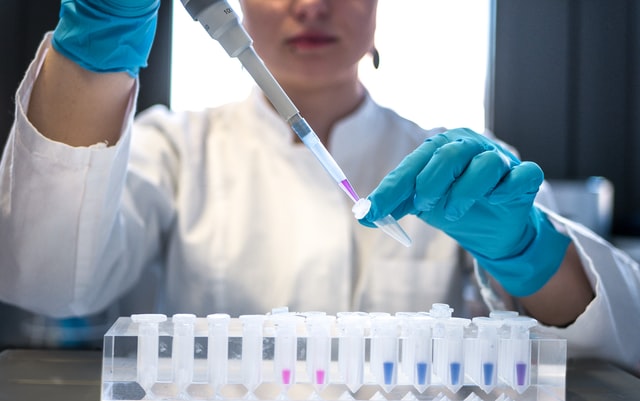Japanese Cellular Immunotherapy: Revolutionary Cancer Treatment Method
- Normal Liver Cells Found to Promote Cancer Metastasis to the Liver
- Nearly 80% Complete Remission: Breakthrough in ADC Anti-Tumor Treatment
- Vaccination Against Common Diseases May Prevent Dementia!
- New Alzheimer’s Disease (AD) Diagnosis and Staging Criteria
- Breakthrough in Alzheimer’s Disease: New Nasal Spray Halts Cognitive Decline by Targeting Toxic Protein
- Can the Tap Water at the Paris Olympics be Drunk Directly?
Japanese Cellular Immunotherapy: Revolutionary Cancer Treatment Method
- Should China be held legally responsible for the US’s $18 trillion COVID losses?
- CT Radiation Exposure Linked to Blood Cancer in Children and Adolescents
- FDA has mandated a top-level black box warning for all marketed CAR-T therapies
- Can people with high blood pressure eat peanuts?
- What is the difference between dopamine and dobutamine?
- How long can the patient live after heart stent surgery?
Japanese Cellular Immunotherapy: Revolutionary Cancer Treatment Method.
In the field of cancer treatment, Japan has consistently been at the forefront with its innovative and efficient approaches.
Particularly in the realm of cellular immunotherapy, Japanese research and practices have gained a leading position worldwide.
This treatment method is a revolutionary approach that harnesses the body’s immune system to target cancer cells, aiming to provide patients with safer and more effective treatment options.

What is Cellular Immunotherapy?
Cellular immunotherapy is a treatment method that utilizes the body’s own immune mechanisms to attack cancer cells.
The fundamental principle involves extracting immune cells from the patient, proliferating and enhancing them outside the body, and then reintroducing them into the patient’s system through intravenous infusion to effectively combat cancer cells.
The advantage of this method lies in leveraging the patient’s own immune strength to fight cancer, resulting in minimal side effects.
Japan’s Position in Cellular Immunotherapy
Japan is a pioneer in cellular immunotherapy and currently one of the most advanced countries in research and clinical studies of solid tumors.
Japanese cellular immunotherapy has reached a globally leading level in terms of research and technological advancements in cell cultivation and processing.
Japanese cellular immunotherapy not only excels in technology but also demonstrates remarkable efficacy in practice.
According to clinical trial results from Japan’s Chiba Cancer Center, cellular immunotherapy can effectively prevent recurrence and metastasis after surgery, as well as enhance patients’ immune response to prevent cancer relapse.
Safety is a paramount consideration in Japanese cellular immunotherapy. Research centers in Japan prioritize safety during cell processing and adhere to stringent dual monitoring standards.
Additionally, they employ computer information systems for round-the-clock detection and management to ensure cell cleanliness.
Furthermore, they offer customized services to select the most effective and safe treatment plans for each patient.
Types of Japanese Cellular Immunotherapy
Japanese cellular immunotherapy encompasses various types, including autologous activated lymphocyte and natural killer (NK) cell therapy, dendritic cell immunotherapy, and autologous tumor cell antigen-stimulated cytotoxic T lymphocyte (CTL) therapy.
Autologous activated lymphocyte and NK cell therapy involve proliferating and activating lymphocyte cells or NK cells extracted from the patient’s body outside the body, and then reintroducing them into the patient’s system. This method enhances the patient’s immune response to effectively target cancer cells.
Dendritic cell immunotherapy utilizes dendritic cells, specialized immune cells responsible for presenting antigens, to stimulate immune responses.
Dendritic cells are collected from the patient’s body, cultivated and processed outside the body, and subsequently reintroduced into the patient’s system. This method helps the patient’s immune system better identify and attack cancer cells.
Autologous tumor cell antigen-stimulated CTL therapy utilizes the patient’s own cancer cells to stimulate immune responses.
Firstly, cancer cells are extracted from the patient’s body and then cultured together with immune cells such as lymphocytes outside the body, inducing a specific response against cancer cells. The cultured immune cells are subsequently reintroduced into the patient’s system to attack cancer cells.
Conclusion
Japanese cellular immunotherapy holds a revolutionary position in the field of cancer treatment, leveraging the patient’s immune system to target cancer cells with high efficacy, safety, and customization.
Currently, Japanese cellular immunotherapy has gained recognition and application to some extent worldwide, providing cancer patients with more treatment options.
However, despite the significant achievements of cellular immunotherapy in cancer treatment, it is not a foolproof solution, and treatment outcomes may vary due to individual differences.
Some patients may experience suboptimal responses. Therefore, when considering cellular immunotherapy, patients need to maintain close communication with their doctors to select the most suitable treatment plan for themselves.
Japanese Cellular Immunotherapy: Revolutionary Cancer Treatment Method
(source:internet, reference only)
Disclaimer of medicaltrend.org
Important Note: The information provided is for informational purposes only and should not be considered as medical advice.



